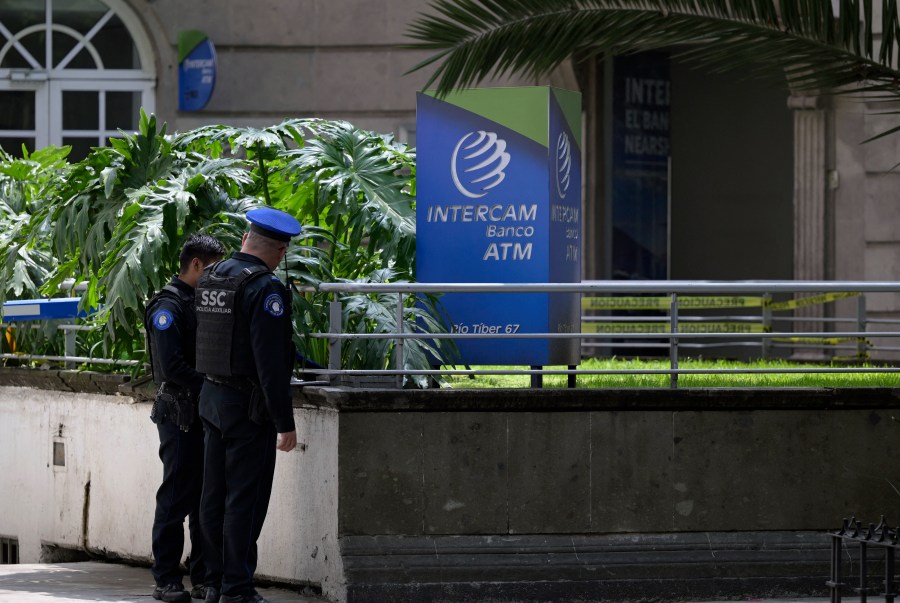Trump’s new front in the war on drugs: The banks

While most headlines fixate on border walls and migrant surges, the Trump administration has quietly redrawn the front lines of America’s war on fentanyl.
This time, there are no boots, no barbed wire, and no rallies in El Paso. The fight has moved into spreadsheets and settlement systems. It now begins with bank wires.
On June 25, the Financial Crimes Enforcement Network (FinCEN) executed what amounts to a financial airstrike. Three Mexican financial institutions were designated as “primary money laundering concerns” under expanded fentanyl-related authorities. CIBanco, Intercam Banco and Vector Casa de Bolsa were each linked to laundering proceeds tied to the Sinaloa, Gulf and Jalisco New Generation cartels.
For the first time, the U.S. invoked enhanced powers under the Fentanyl Sanctions Act and its 2024 counterpart, the FEND Off Fentanyl Act, to prohibit U.S. financial institutions from executing fund transfers with the designated entities.
This isn’t symbolic policy. These orders carry direct operational impact.
Any U.S. bank conducting business with these institutions, directly or through intermediaries, must now sever ties. Access to dollar clearing? Gone. Trade finance exposure? Risky. Every transaction now triggers compliance protocol and reputational scrutiny.
This is not traditional sanctions strategy. These are not sweeping Office of Foreign Asset Control designations that allow for humanitarian carveouts or negotiated wind-downs.
This is a tactical, targeted strike embedded in the guts of the global financial system. It is precise, asymmetric and unrelenting, the financial equivalent of a drone strike without the debris.
And it marks a doctrinal shift. Trump, often caricatured as obsessed with walls and tariffs, has added a powerful new weapon to his arsenal: financial denial infrastructure. It is not just about stopping the flow of drugs. It is about shutting off the liquidity that sustains the pipeline.
For all the theater of his immigration speeches, this is the quiet policy move that may prove more durable.
Consider the backdrop: More than $60 billion in remittances flows annually from the U.S. to Mexico. A meaningful share of those funds passes through regional banks and brokerages that until now operated with little cross-border scrutiny.
By targeting institutions complicit in laundering cartel money and facilitating payments for precursor chemicals, FinCEN is signaling that the fentanyl trade will no longer be approached as a law enforcement issue alone. It is now a financial systems threat as well.
And the Treasury Department isn’t bluffing. The evidence cited in the designations includes direct ties to narcotics traffickers, shell entity layering and even meetings between bank executives and cartel operatives.
One institution allegedly laundered more than $2 million to Chinese chemical suppliers. Another handled structured wire transfers linked to bulk cash smuggling. These aren’t abstract compliance failures. They are systemic facilitation mechanisms.
Mexico’s government has already begun to push back, claiming the designations were unilateral and lack evidentiary transparency. That objection might resonate diplomatically, but the private sector won’t wait for resolution.
The effect is immediate: Global banks will reassess counterparty exposure. De-risking will accelerate, and any institution in Mexico even tangentially connected to suspicious flows is now within the blast radius.
This is how deterrence takes shape: not through threats, but through demonstration.
The implications go beyond Mexico. China’s role in the precursor chemical supply chain remains the largest upstream vulnerability. If Treasury is willing to designate banks in North America, it is only a matter of time before East Asian entities face the same treatment. What began as a domestic opioid crisis has now metastasized into a transnational compliance dragnet.
Yet almost no one is talking about it. In today’s media environment, fragmented, fast-moving, and dominated by sensationalism, this pivotal FinCEN action received little attention. But make no mistake: this is Trump’s most sophisticated offensive yet.
It is built on the post-9/11 financial architecture but directed inward, toward cartels, their financial enablers and the global institutions that have failed to scrutinize cross-border flows with appropriate rigor.
Some will claim this amounts to financial imperialism. Others will say it bypasses diplomatic norms.
Both critiques miss the point. This isn’t about diplomacy. It’s about leverage. And when cartels can move hundreds of millions through opaque correspondent channels, the argument for restraint disappears.
What matters now is precedent. The U.S. has shown that it will name and isolate not just kingpins, but banks as well — not just shell companies, but regulated institutions. It has turned the anti-money laundering infrastructure, long treated as a compliance checklist, into an instrument of statecraft.
This is no longer a question of border control. It is now a matter of financial sovereignty.
For compliance officers, the message is unmistakable: The risk calculus has changed. For regulators abroad, it sends the warning that proximity to the U.S. financial system no longer guarantees immunity. And for traffickers, it signals a new reality: Your money has nowhere safe to go.
This is how you fight fentanyl in 2025 — not just with interdiction, but with isolation. Not just with rhetoric, but with remittances.
Trump, whether intentionally or not, has handed Treasury a new doctrine: one that doesn’t require a camera crew, a legislative majority or a border photo-op. Just a Fedwire terminal, a designation memo, and the full weight of the U.S. financial system.
And that may prove more powerful than any wall ever could.
Brett Erickson is managing principal at Obsidian Risk Advisors and an advisory board member at the Loyola University Chicago Law’s Center for Compliance Studies and DePaul University College of Business.